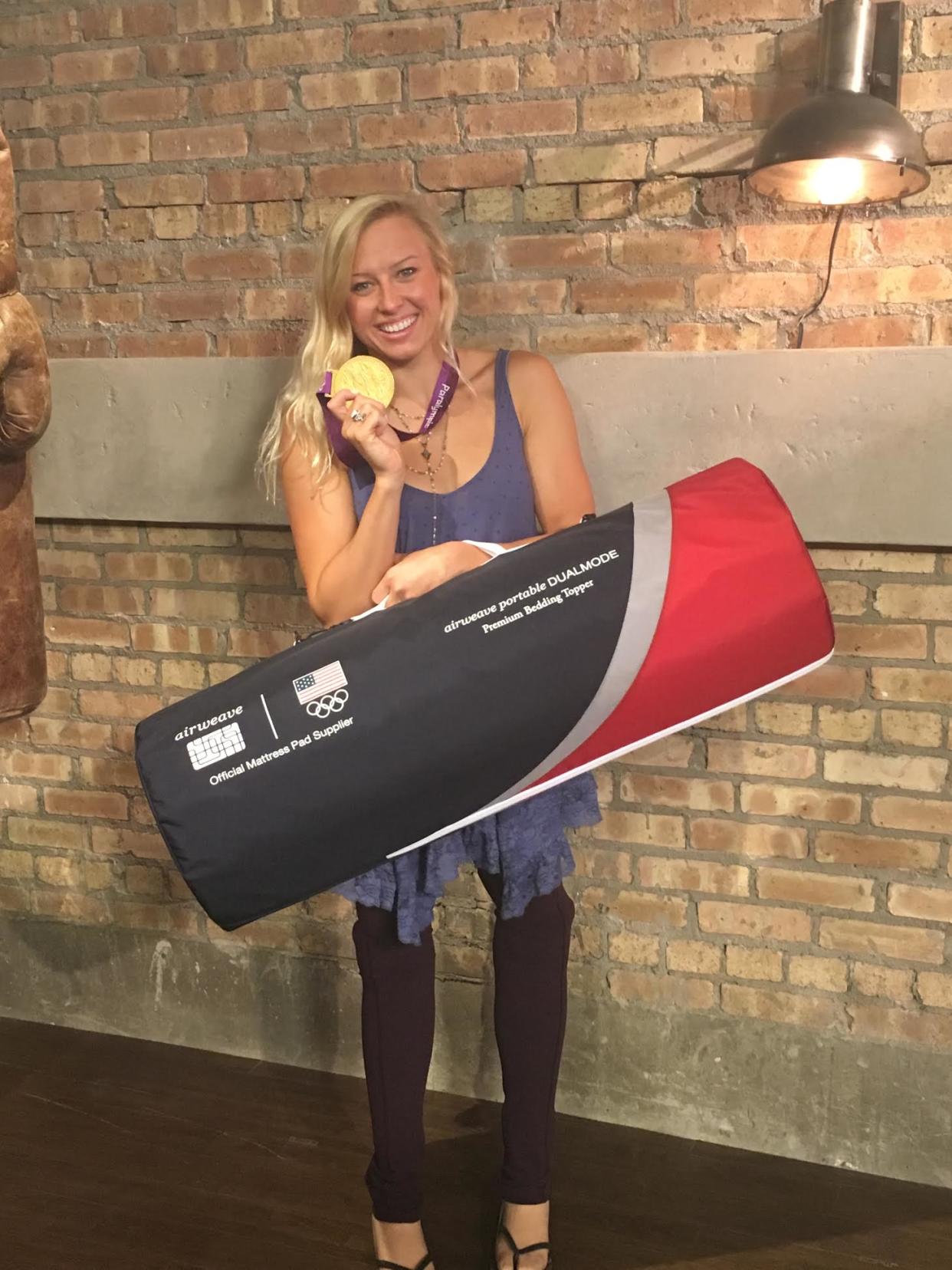Exclusive Q&A: Paralympic swimmer and gold medalist Jessica Long

Superstar Paralympic swimmer Jessica Long has held world records in several events in her class and has won multiple gold medals over three Summer Paralympics.
She competed at the Athens Olympics at age 12, winning three golds. She has swam in Beijing and London as well, racking up dozens of world records along the way. In 2006, Long became the first Paralympic athlete selected as the AAU's James E. Sullivan award winner, and last year she was USA Swimming's Disability Swimmer of the Year.
SEE MORE: Everything you need to know about Rio 2016
Recently, she has partnered with airweave, which helps with deep slumber, maximum body support and distribution. Along with its USOC deal, airweave is a partner with US Swimming, golfer Bubba Watson and provides the beds for all athletes at the Olympic Training Center in Colorado Springs.
Ahead of the Rio Olympics, Jessica sat down with AOL Sports to discuss her new partnership, her past success and what lies ahead for her journey as a world-class athlete.
Q: How much fun has it been to be working with airweave and how excited are you for Rio?
A: It's been really exciting to be a part of airweave and their team, especially with Rio coming around the corner. These will be my fourth Paralympics, so I have my set routine ,but the past two years have been a little tough at times because in January, I was dealing with such bad shoulder pains. I had physical therapy and all that, but it's amazing how this worked out because of airweave. We built a partnership and the pain has gone away. But overall, no matter the outcome in Rio, I'm proud of everything.
For me, when you get older, you learn to appreciate things so much more. My parents will be there cheering for me. When you're younger they're always there, but when you get older, they're not always there, at every competition. They'll be there, though, and it'll be great. It'll be great to visit there, and I'm just looking forward to experiencing the culture.
Q: How did you develop such a passion for your sport and was it always a goal to compete at this big of a stage?
A: For most athletes, it starts with pure love of sport. I was born with fibular hemimelia, and I always needed an outlet. I needed to get out energy. I needed a place to be determined and overcome obstacles. When I found the water, I fell in love with it. I felt free. That's when I started getting good. I remember when I broke an American record, I was, like, 11 and I wasn't expected to make the team. I wasn't supposed to make it. I was 9th or 10th in the world, which is great, but we were preparing for potentially not going to the upcoming Games -- and I ended up winning gold medals. As a 12 year old, I was saying to myself, 'I did not come here to get second.' ... I beat the world record holder by tenth of a second. It's crazy. It kind of just took off.
Q: Did you feel the immense pressure of the Olympics, even at a young age? How did you deal with that?
A: As a 12 you're not even totally aware of all the pressure. I remember eating ice cream in the village. I was there just having fun with my friends. The pressure came years later. I told everyone I wanted to win seven gold medals -– and I came home with four and I felt like I failed. You felt the pressure and I experienced it and I grew. Now, I don't feel pressure. I'm not nervous. I know exactly what to expect and I'm real excited.
Q: What are some health and wellness tips you can offer for the average person wanting to improve that part of their life?
A: You don't have to be an Olympic athlete to be healthy. Moderation is something I work on. It's OK to have an ice cream as long as you are living a balanced and healthy lifestyle. You don't have to work out for two hours; a 30-minute walk is great too. But because I exercise and eat right, I sleep better, I feel better – everything is better when I fuel my body.
Q: What advice would you give to a first-time Olympian?
A: I'd say, try to enjoy every single moment because it was so exciting. It'll be over so quickly. Take it all in. Try not to be too nervous. My first race is always my toughest ... overall, I'd say enjoy.
Q: Do you honestly ever have moments where you have to actively try and stay motivated, given how much success you continually have?
A: There are some tough years with being motivated. There are moments. But I've had some firsts. I've been living on my own, I started dating someone. There's a world outside swimming and I've learned that. There is a struggle to muster up motivation to keep winning and keep proving it to people. But at the end of day, I've learned a lot and the 12 medals don't define me. There was a point they did. It was exciting, but I wasn't living. I've learned to balance my life. I enjoy family time, and it's exciting to go into Rio knowing I don't have anything to prove.


